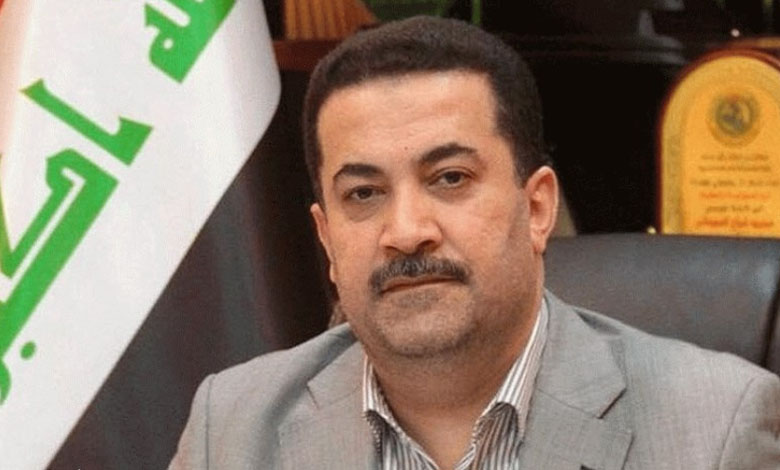Iraq is waiting for the formation of its sixth government; Will Al Sudani succeed?

Iraqis are in a state of anticipation waiting for Prime Minister-designate Mohammed Shia’ Al Sudani to present his ministerial curriculum and distribute his cabin bags. After avoiding mistakes and amending the request sent by Prime Minister-designate Mohammed Shia’ Al Sudani to the presidency of the Council of Representatives, Deputy Speaker of the Council of Representatives Shakhoan Abdullah Ahmed agreed to a request for granting confidence to the new government, supporting the prime minister-designate to complete the cabinet, and preparing the Council of Representatives to hold a session tomorrow, Thursday, to vote on the ministerial program and the names of candidates for ministerial portfolios,” said Shakhoan Abdullah Ahmed, the office of the Second Deputy Speaker of the Council of Representatives.
Surprise
Mouin AlKazmi, a representative from the Fatah Alliance, confirmed that “Prime Minister-designate Mohammed Shia’ Al Sudani will not present a complete list in the parliamentary session scheduled for tomorrow. He pointed out that the government is composed of 23 ministries, including 12 ministries for the Shiites, 6 for the Sunnis, 4 for the Kurds, and 1 for the Christian minority.” He clarified that “four ministries from the Shiites’ share are of the Al Sudani option, and the remaining eight are of the political forces’ choices in the framework”. For her part, Ibtisam Al-Hilali, a representative from the Coordination Framework, said, “Prime Minister-designate Mohammed Shia’ Al Sudani is surprised by the presentation of the cabinet’s cabinet to the Council of Representatives in a session of granting confidence to his government.” Al-Hilali confirmed, “The lists of candidates for ministerial portfolios that were published in some media outlets and social media sites are incorrect, but some of those names are already nominated in the ministerial cabinet.”
Doomed to failure
For their part, protest and political forces are opposing and rejecting the ongoing sharing of powers and ministerial realities in accordance with the principle of quotas, which the country has tried in the past five governmental copies and which have all ended in failure and retreat of state institutions. This is what Salah Al-Arabawi, the head of the Al-Wa’y Movement, confirmed, saying, “The government of Al Sudani is bound to fail in advance because it represents a re-internationalization of failure and causes of delays and stumbling again”. Quotas and consensual democracy are experienced by Iraq for many times and have only resulted in structural collapses that have legitimized corruption and uncontrolled weapons, and put the country in front of fundamental and existential crises, including drought, sovereign violations, lack of development, and high rates of poverty, unemployment, and others,” he said. The Prime Minister-designate submits his ministerial curriculum in writing to Parliament for an acceptable period of time, and Parliament can, according to Article 61 of the Constitution, hold the Prime Minister-designate accountable when his ministerial curriculum is not implemented, as his responsibility is in solidarity with the rest of the ministers before Parliament, according to Al-Tamimi.
Parliament awaits
In the same context, the Iraqi parliament is awaiting the presentation of the Al Sudani Prime Minister-designate, Mohammed Shia’ Al Sudani, to the government program and the formation of his new government. This comes after the country stumbled into a political crisis over a year that violated the binding constitutional timetables for the election of the president and the appointment of the prime minister, following the last legislative elections in October. Despite the circulation of news and the flow of many statements and statements about the names and personalities that Al-Sudani will include in the government portfolio, there are doubts about this speculation. The expected Al Sudani government emerges from a coalition of the forces of the coordinating framework, the Alliance of Sovereignty and Determination (Sunni forces), and the Kurdistan Democratic Party, while it is known as the “State Administration” coalition, which was formed in late September. The main components of the “State administration” compete for the State administration” alliance, for the management of the Foreign State administration, often in the 233 ministries, and foreign affairs, such as the internal affairs, which are The attraction and conflict of major powers.












